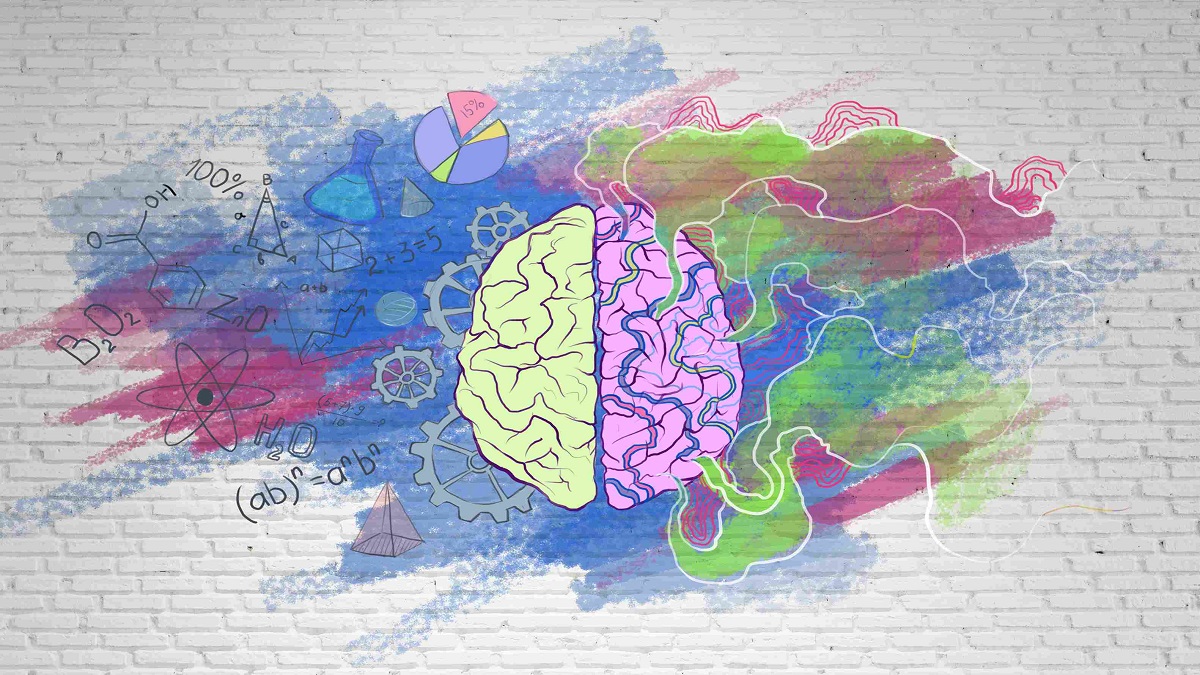While many practices lead to poor brain health, some might have the most impact as they are the worst habits for your brain. Chronic stress, insufficient sleep, social isolation, excessive sitting, and many more. Fortunately, they may also be the simplest to modify.
You know the detrimental effects on your brain of a poor diet and a long-term sofa indentation. However, there are a few lesser-known everyday habits that may be impairing your mental health. You may improve your health and quality of life as you age by changing even one of these behaviors. Plus, there’s always time to get started. It is beneficial for people with memory problems as well as for changing detrimental habits.
Avoid These Habits For Sake Of Your Brain

1. You Think Negatively
Not only can harboring grudges, resentments, and negative thoughts keep you down and be one of the worst habits for your brain, but research published in the journal found that ruminating on these things has been connected to cognitive and memory deterioration in those 55 and older.
The brains of participants who focused on negative thoughts on a regular basis showed higher levels of amyloid and tau deposits, which are biochemical indicators of Alzheimer’s disease. To some extent, everyone thinks negatively repeatedly. Alzheimer’s is a natural part of life, and not everyone will have it. It’s also a habit that can be altered.
2. Too Much Sitting
An adult’s brain is negatively impacted by spending six and a half hours a day on a chair. According to research published in PLOS One, excessive sitting is associated with alterations in a region of the brain crucial for memory.
People between the ages of 45 and 75 had their medial temporal lobe (MTL), a part of the brain responsible for creating new memories, examined using MRI images. The average number of hours that each person spent sitting was then compared to the scan results. MTL areas were thinner in those who sat for the longest. The researchers found that MTL thinning may be a sign of dementia and cognitive impairment.
Spend 15 to 30 minutes seated, then get up. As a reminder, set a continuous timer on your phone. Move actively. Take a power walk around the neighborhood, perform some lunges or squats, push-ups on the kitchen counter, or just stroll around the home.
3. Drink Sugary Beverages
Notice if you usually start your day with a big glass of orange juice for breakfast. Research linked the use of sugar-filled beverages to decreased hippocampus and overall brain capacity, as well as worse episodic memory.
Additionally, studies conducted discovered a strong correlation between deteriorating cognitive performance and sugar-laden beverages such as fruit drinks, energy drinks, sweetened tea, soft drinks, and sports drinks due to one of the bad habits that can hurt your brain. Fruit juice is essentially a sweet beverage without the added benefit of fiber, even if it does include some useful phytonutrients.
A study claims that consuming sugar-filled beverages may cause many individuals to have an increased insulin response and blood sugar spike, which may result in persistent inflammation in the brain. Eating entire fruits rather than just their juices might be far healthier. A small orange has nine grams of sugar and 2.5 grams of fiber. The fiber has been filtered away when you drink the same volume of orange juice.
4. Having Bad Sleep Habits
A keen and active mind depends on getting a good night’s sleep, according to the Global Council on Brain Health. One key indicator of high-quality sleep is consistency: go to bed and get up at the same time every day.
Your rhythm might be disrupted by shift work, time zone changes, ongoing stress, and consuming excessive amounts of alcohol or coffee. Thus, too, might sleeping in a room that isn’t sufficiently cold or dark. See a doctor if you experience any of the following signs of sleep apnea: snoring or excessive daytime tiredness.
Because they may lead to inflammation and the production of amyloid plaque in the brain, abnormalities in oxygen levels have the potential to harm nerve cells. Untreated sleep apnea causes a significant accumulation of cerebral amyloid, a crucial marker for Alzheimer’s disease, which over time increases memory and cognitive impairments.
5. Lack Of Socializing
Loneliness may hasten cognitive deterioration and is associated with depression and an increased risk of Alzheimer’s disease. The outer layer of the brain responsible for processing information, known as gray matter, is lost more in less socially engaged individuals, for this is one of the worst habits for your brain, according to research published in The Journals of Gerontology.
Staying socially active throughout COVID has been difficult, but there are advantages even if you don’t connect with many people. Find two or three friends who you can share everything with.
Assemble your social pod in this group. Send them frequent texts or phone calls or arrange a Zoom cocktail hour once a week (alcohol not necessary). Select those who have significance and provide cerebral stimulation for you if you want significant and stimulating encounters.
6. Not Exercising Enough
Many of us first made most of our time off from work during the pandemic by using our bikes, hiking trails, and walking pathways. However, data published in the Journal of the American Board of Family Medicine indicates that many individuals started moving less and sitting more as the amount of remote work increased and gyms closed for long periods.
That is detrimental to our brains in the short and long term. Sedentary lifestyles have been linked over time to cognitive deterioration, including dementia. The absence of exercise impairs mood, attention, and concentration in the short term. This is most likely due to the fact that activity causes the brain to produce a variety of chemicals, including endorphins and serotonin, which lessen anxiety, elevate despair, and enhance attention.
You could believe that increasing your email response time by fifteen minutes would increase your productivity. Your mood, concentration, memory, and productivity will all improve if you use that time to move your body instead of sitting still.
7. Enjoying Loud Music In Headphones/Earphones
It may be one of the bad habits that can hurt your brain as well if it is terrible for your ears. An almost twofold increased risk of dementia was linked to modest hearing loss in research including 639 persons aged 36 to 90 years.
Generally speaking, your earphones are too loud if someone else can hear sound from them. Bring a pair of foam earplugs with you, wear them to athletic events and concerts, and try to avoid noisy places when you can. The noise level in your environment is excessive if you are unable to hear someone within three feet of them.
8. Chronic Stress
Prolonged stress may reduce the prefrontal cortex, the part of the brain involved in memory and learning, and even cause brain death. A “my-way-or-highway” mentality is a significant source of stress for older people. Every time something doesn’t go your way, this high-expectations attitude might set off unfavorable emotions that increase stress levels.
Be adaptable in how you respond. Take a few calm breaths, remind yourself that you don’t always know what is best, and realize that alternative strategies could work when you feel like you’re ready to lose it. Additionally, you may help yourself relax by telling yourself, “I’m all right, right now.” Stress may be prevented before it becomes out of hand by taming your ego.
9. Not Flossing
When your dentist advises you to floss, do you roll your eyes? It could be something you wish to try. Bad dental hygiene may cause germs to accumulate in the mouth, causing gingivitis, an inflammatory condition of the gums that, if ignored, can progress to periodontitis, a persistent infection of the mouth.
According to the study, tooth loss and poor periodontal health seem to raise the risk of dementia and cognitive impairment. It is possible for bacteria and inflammatory mediators to enter the circulation and travel to the brain from the mouth.
According to another study, those who are toothless are 28 percent more likely to get dementia and 48 percent more likely to have cognitive impairment. The American Dental Association advises reducing sugary drinks and snacks, flossing every day, cleaning your teeth twice a day for two minutes each time, and scheduling regular dental visits.
The Importance of Good Habits for Your Brain
Good habits are essential not only for our physical health but also for the optimal functioning of our brains and for avoiding the worst habits for your brain. In an age where mental health challenges are increasingly prevalent, cultivating habits that support cognitive well-being is crucial.
Enhancing Cognitive Function: Regularly engaging in mentally stimulating activities—like reading, puzzles, or learning new skills—can improve brain function. These activities promote neuroplasticity, allowing the brain to form new connections and pathways, which can enhance memory and problem-solving abilities.
Reducing Stress: Good habits such as mindfulness, meditation, and regular exercise can significantly reduce stress levels. High stress can impair cognitive function and increase the risk of mental health disorders. By incorporating stress-reduction techniques into daily life, individuals can maintain clearer thinking and better emotional regulation.
Promoting Physical Health: Physical health is closely linked to brain health. Regular exercise improves blood flow to the brain and encourages the release of neurotrophic factors, which support neuron growth and survival. Additionally, a balanced diet rich in antioxidants, healthy fats, and vitamins provides the necessary nutrients for brain function, enhancing memory and concentration.
Improving Sleep Quality: Quality sleep is fundamental for cognitive processes, including memory consolidation and emotional regulation. Establishing a consistent sleep routine, avoiding screens before bedtime, and creating a restful environment are habits that can enhance sleep quality, leading to better overall brain health.
Social Connections: Maintaining strong social ties is another critical habit for brain health. Social interactions stimulate cognitive processes and emotional resilience. Engaging with friends and family, participating in community activities, and nurturing relationships can combat loneliness and promote mental well-being.
FAQ
Q: If you don’t utilize your brain, what happens to it?
A: Brain cells function on the same basic principle as muscle cells, even though they are not made of muscle. Use it or lose it. A brain cell loses its function if it is not utilized or if it does not interact with the next cell.
Q: What occurs if there is no stimulation of the brain?
A: Anything that involves brain workouts falls under the category of mental stimulation. If we want our brain to stay in peak condition, we should use it. If we don’t, we run the danger of cognitive decline, which manifests itself among other things as diminished creativity, memory issues, and thinking abilities.
Q: Can the brain heal itself after a depressive episode?
A: Neurons, or nerve cells, have cellular extensions called dendrites. This shows that the brain can recover and that alterations brought on by depression may be reversible. Antidepressants and cognitive behavioral therapy are two examples of treatments that may help lessen the inflammation brought on by depression.











